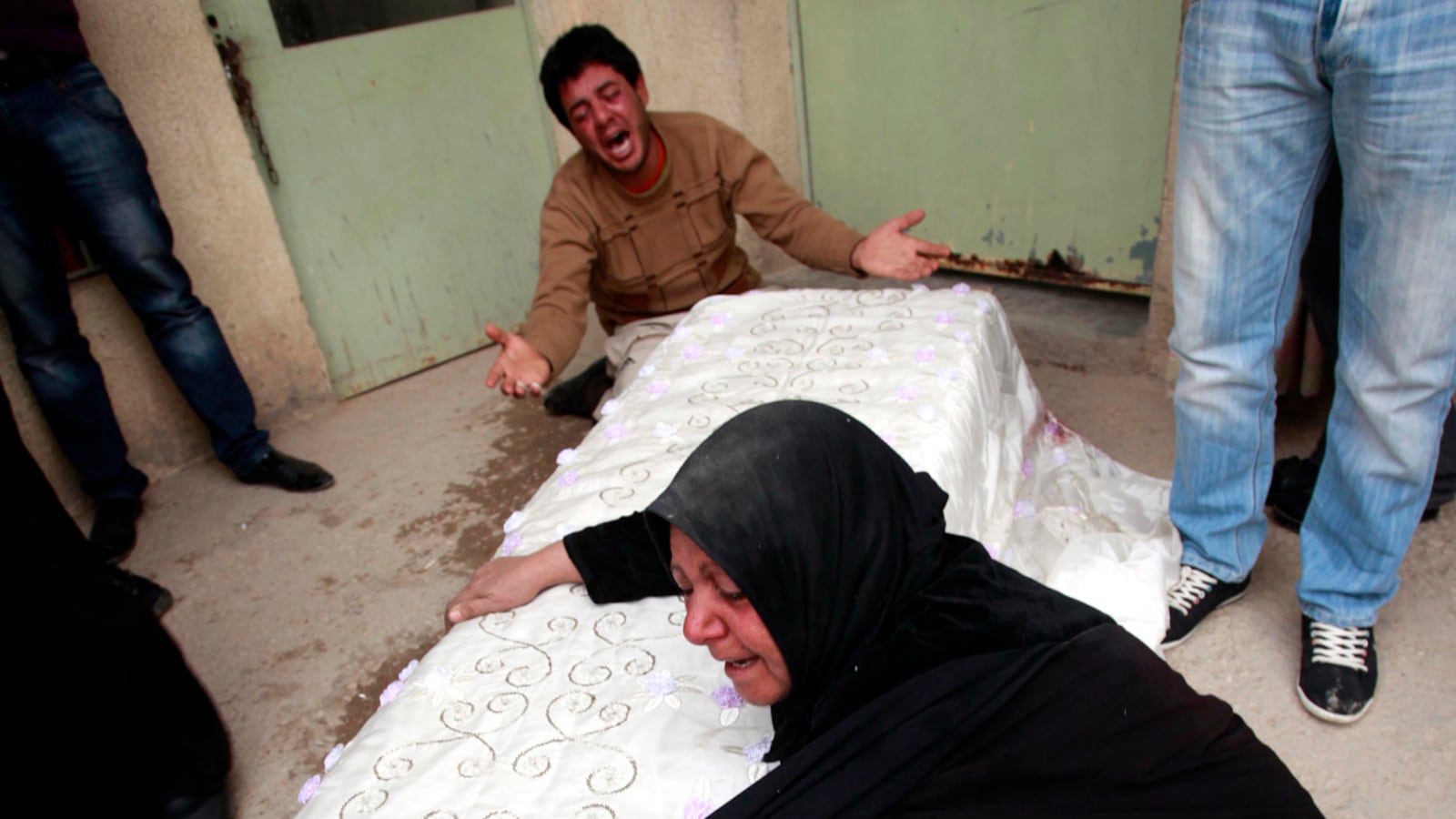At least the Nixon administration got something of a “decent interval” before North Vietnam betrayed their exit strategy from Southeast Asia.
The Obama administration did not even get that from the Iraqis. Iraqi Prime Minister Nuri al-Maliki did not even wait till the last American troops had crossed the line into Kuwait—not even till he had gotten off the plane that brought him back from his recent trip to Washington—to mount a brazen and phenomenally dangerous coup against his primary political foes. For those who have not been keeping up with current events, a cursory overview of the crisis in Baghdad may be in order. Throughout the fall, Iraq’s four Sunni-dominated provinces (al-Anbar, Salah ad-Din, Ninewah, and Diyala) have been signaling that they will seek regional status, as allowed by the federalism procedures of Iraq’s constitution. Doing so would allow them to distance themselves from Baghdad, which the Sunnis see as increasingly dominated by an increasingly autocratic prime minister in Maliki. As if to prove their point, Maliki has insisted that any such moves would be illegal, despite the fact that they are clearly mandated by the constitution.
Last week, on the heels of his trip to the White House, Maliki decided to take action. He accused Sunni Vice President Tariq al-Hashimi (a recent, but now vocal, convert to Sunni federalism) and Finance Minister Rafe al-Issawi, both prominent leaders of Maliki’s main political rival, the Iraqiyyah party, of being behind a failed terrorist attack that Maliki’s people insist was aimed at the prime minister himself—despite the absence of any evidence either that it was aimed at him or that Hashimi and Issawi were involved. Maliki deployed tanks to both of their houses and then issued a warrant for Hashimi’s arrest.

He then announced that the cabinet had deposed Deputy Prime Minister Saleh Mutlaq, another important Sunni leader of Iraqiyyah and another proponent of Sunni federalism. Again, the Iraqi constitution clearly stipulates that removing the deputy prime minister requires a vote in parliament, and Maliki and his staff have simply asserted that this is not so. The prime minister also aired videotaped “confessions” by two of Hashimi’s bodyguards, who had previously been arrested by Maliki’s security people, in which they claimed that Hashimi was involved in various acts of terrorism dating back to 2008. Not surprisingly, various Sunnis insist that the confessions were produced by torture.
Sunnis (and Kurds and many other Iraqis) now see a prime minister acting in arbitrary and blatantly unconstitutional fashion, manufacturing paper-thin charges against his most important political adversaries to remove them from power. It is what the Sunnis (and all of Iraq’s other minorities) always feared, and why they wanted American troops to stay. It has pushed Iraq to the brink of political crisis with shocking speed.
The crisis is extremely dangerous for the United States. Dangerous for President Obama politically, because his administration’s risky decisions regarding the withdrawal of American troops from Iraq were based on their determination that Iraq was stable and democratizing and therefore no longer needed a large U.S. military presence. Dangerous for the country’s vital interests, because Maliki’s brazen attack on key Sunni political leaders has an uncomfortably high likelihood of sending Iraq spiraling into a new civil war. Indeed, historically, states that experienced a major intercommunal civil war like Iraq did in 2005-2007 relapse 33 to 50 percent of the time. And civil war in Iraq would threaten not only Iraq’s own oil production, but that of neighboring states like Kuwait, Iran, and even Saudi Arabia. (Just another reason that we, and the rest of the developed world, need to kick our oil addiction....)
One of the most frightening aspects of the crisis has been that although American interests are clearly threatened, events so far suggest that we have almost no ability to guide its outcome.
With the withdrawal of American troops, Prime Minister Maliki and his coterie are flat-out ignoring Washington’s requests, demands, and desires. Starting on December 17th, Vice President Joe Biden, Director of Central Intelligence David Petraeus, Assistant Secretary of State Jeff Feltman, and Ambassador Jim Jeffrey have all weighed in with a wide variety of Iraqis, all to no effect. The U.S. has been urging Prime Minister Maliki to tone down his attacks, stop making inflammatory accusations, desist from taking any more incendiary steps, and generally de-escalate the crisis.
Instead, Maliki has done the exact opposite. On December 21 he gave a press conference in which he demanded that the Kurds hand over Vice President Hashimi for arrest, insisted that the (unconstitutional) decision to depose Deputy Prime Minister Saleh Mutlaq be respected, threatened wider action against other Iraqiyyah party leaders if they do not cooperate with him, and threatened to rule as a majoritarian government without the Sunnis. Then, on December 22, he widened his attacks to charge Finance Minister Issawi, a prominent Sunni from Anbar and one of the most decent men in the Iraqi government, with collaboration with terrorists back in 2006. It would be difficult to describe these as the actions of a man acceding to American wishes to defuse the situation.
In retrospect, Maliki’s trip to America at the beginning of the month takes on a very different light. He clearly hoped to convince most Iraqis that he retained a very strong relationship with the United States—that Washington continued to “back him” in a colloquial sense—something that was obvious even before the trip. The success of his visit, and the administration’s efforts to make relations appear warm and friendly, appears now to have helped Maliki move against his domestic rivals. He certainly evinced no interest in using the trip to secure American help in reconciling Iraq’s fragmenting communities. He bluntly scorned even the suggestion that compromise and reconciliation were necessary. However, Maliki may also have intended the trip as a marker, or even a warning, to the United States: $10 billion worth of U.S. arms sales to Iraq are in the offing—$10 billion worth of American jobs—as long as Washington doesn’t blow it by trying to get involved in Iraqi internal politics.
In other words, Maliki may believe that, if anything, his arms purchases from the United States give him $10 billion worth of influence with Washington and insulation from American pressure. All other things being equal, the Iraqis would undoubtedly like to get the weapons from the U.S., because American arms are now the “gold standard,” and what Iraq’s generals want. But all other things are never equal in Iraq, and politics always lays a heavy hand on the scales. Maliki and his advisers may believe that an economically challenged American administration cannot afford to jeopardize $10 billion worth of sales, and that if Washington were ever to do so, he would simply get his weapons elsewhere. He may well believe (like many others before him) that Iraq’s huge, potential oil wealth puts him in the driver’s seat. In other words, those arms sales are not a source of leverage for the Americans over the Iraqis, but a source of leverage for Iraq over the Americans.
So what is going to happen in Iraq? Who knows.It probably won’t be good. It could easily be disastrous, and the United States is now along for the ride without much say in any of it.





